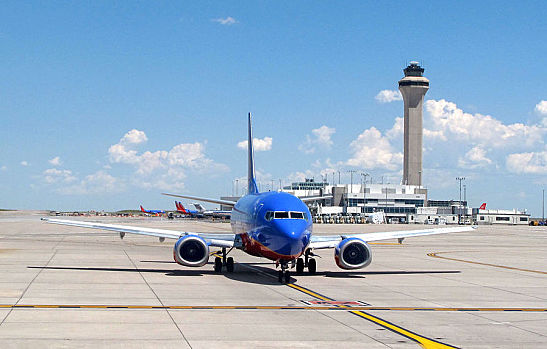The Federal Aviation Administration (FAA) has changed its mind about restricting passenger use of cell phones, tablets, and laptops during critical flight procedures. After a study involving pilots, passengers, flight attendants, mobile phone makers, and airplane manufacturers, the FAA has issued a new guideline: Electronic devices can stay on during take-off and landing, The Next Web reports.
What’s the Big Deal?
Why can’t you use phones on planes? It’s a frequently Googled question, with cell phone supporters claiming there is no way a device could bring down a jet, while safety advocates argue for a “just in case” approach. According to a recent CNN article, there’s some evidence of mobile devices interfering with airplane radio frequencies.
It’s not that device signals will turn off cockpit controls or cause the landing gear to jam, but they could interfere with normal radio operations and make landing a plane during inclement weather much more difficult.
“It’s not necessarily that a phone can bring down an airplane… that’s not really the issue,” Kenny Kirchoff, an engineer at Boeing’s Electromagnetic Interference Lab, told CNN. “The issue is interfering with the airplane and causing more work for the pilots during critical phases of flight.”
It’s no wonder, then, that the FAA took the hard line of demanding passengers turn off their devices before takeoff and landing. Increased mobile device use, however, has provided a wealth of data for aviation experts to examine, and they’ve determined that the potential benefits far outweigh the risks.
Mode Still Matters
It is worth noting that the FAA still wants passengers to put their devices in “Airplane Mode,” which means they will not transmit or receive cell signals. Bluetooth or in-flight WiFi services are allowed, but cell signals are much more powerful. In cases of extreme weather, passengers may still be told to turn off e-readers, cell phones, or tablets. In addition, other countries have not adopted similar rules, meaning fliers may still be asked to power down devices if their flight starts in the United States but touches down somewhere else.
Airlines also aren’t bound to adopt the new recommendations, but Delta has already indicated its willingness to allow devices during all flight phases. The FAA expects “many” carriers will lift bans on electronic devices by the end of 2013. There’s also hope for cell phone service if the FAA works to outline rules with the Federal Communications Commission (FCC), which regulates all cell traffic.
For fliers who prefer to read a good e-book or play Bluetooth-enabled games with their seatmate to pass the time, the FAA decision is good news. For those with holiday trips just around the corner and outdated devices in hand, it might be worth considering a trade-in and upgrade before getting on the plane
It’s official — the FAA agrees with those who wonder “why can’t you use phones on planes?” Takeoff and landing are no longer no-fly zones.
What do you think about using cell phones during air travel? Do you feel safer powering down, or are you on board with the new rule?
Image courtesy of Wikimedia Commons
[cf]skyword_tracking_tag[/cf]

